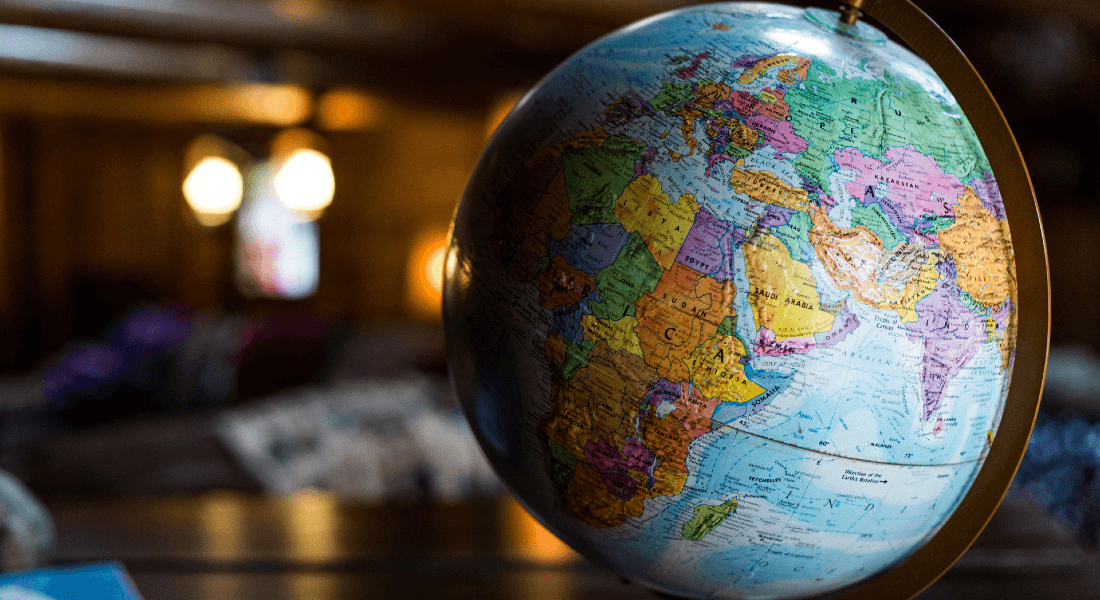From Danish to international and global health: 10-year anniversary of the MSc in Global Health
As a core part of the public health discipline at the University of Copenhagen, a section of international health was built, developing, and hosting international collaborative research activities and educations. 2023 marks the 10-year anniversary of the Master of Science in Global Health, which emerged from the discipline of International Health.

International Health was not new to the faculty when it was introduced in 1998. Since 1964, medical students in the International Medical Cooperation Committee have been offered an optional 4-6 week course in tropical medicine, later ‘International Health’.
“Time has shown that medical anthropology and qualitative research methodologies are part and parcel of International Health, later called Global Health.”
In 1998, Professor of International Health, Ib Bygbjerg, was appointed to build a section for International Health. During the early years, both the academic and administrative staff of the section grew, often sharing their positions with other sections to cover the disciplines most in need: economics and management, epidemiology, human rights and health, including reproductive rights, and culture and concepts of health and health systems.
The professor shocked his colleagues by first choosing an anthropologist. Time has shown that medical anthropology and qualitative research methodologies are part and parcel of international health, later called Global Health. Most researchers were part of a network, Enhancement of Research Capacity in Developing Countries (ENRECA). It was supported by the Danida programme (originally Danish International Development Agency), which also funded much of the research.
Two years earlier, in 1996, a meeting had been arranged at the Ministry of Foreign Affairs with the participation of the rector, the dean and representatives from Danida to discuss the establishment of a Master’s degree in International Health. An interdisciplinary steering committee with representatives from the university, Danida, and the Statens Serum Institut began planning the programme, and three years later, in 1999, the first students were admitted.
The purpose of the Master of International Health was to train graduates in how to improve efforts in the fields of health and development, with a focus on African countries, and to qualify for interdisciplinary collaboration internationally, regionally, and at local levels. Thus, the master was primarily for graduates from developing countries, where they would subsequently work with disease problems in the populations and help establish social and healthcare systems.
A wide range of research activities in international health in related subjects in the institutions involved, including also Rigshospitalet and Statens Serum Institut, was a prerequisite for building the programme. The programme would take 12 months: 8 for a joint course for all students, 1 for optional special courses, 1 for self-study and 2 for preparation of the final assignment, evaluation, and exam.
“The purpose of the Master of International Health was to train graduates in how to improve efforts in the fields of health and development, with a focus on African countries…”
The qualifications of the graduates included the ability to address public health problems related to health control and prevention in low-income countries. In addition to this, they were equipped to plan and administer health systems and programs, including disaster relief and assistance programs. Their expertise extended to encompass an understanding of the interplay between public health and broader societal issues, as well as the interplay between a country's health policy, economic framework, and implications for health strategies. They were also able to collaborate effectively with health and other authorities to facilitate education, communication, and scientific dissemination purposes. Lastly, they became capable of actively contributing to health promotion, preventative measures, and treatment-oriented programs in low and middle-income countries.
In 2009, a School of Global Health was established by the section to coordinate the university’s educational initiatives, employability, study environment and communication within Global Health.
The Master of International Health ended in 2016. All over the world International Health was replaced by Global Health, and a new 2-year Master of Science in Global Health began in 2013. This new programme builds on the foundation of the previous master and still aims to address the challenges and opportunities presented by the evolving global health landscape. The program's interdisciplinary approach prepares graduates to work effectively in diverse and complex health settings and to contribute to the advancement and promotion of health globally. As we mark the 10-year anniversary of the MSc in Global Health on 13 September 2023, we celebrate the program's contributions to the field of global health and look forward to its continued impact in the years to come.
Contact
Professor Emeritus Ib Christian Bygbjerg, iby@sund.ku.dk
